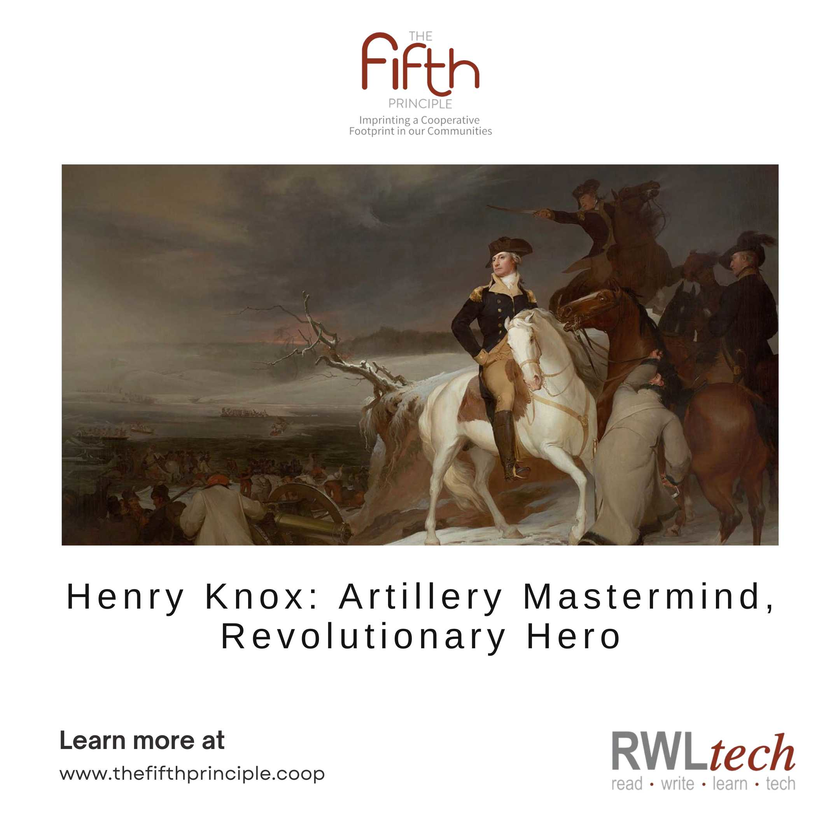Henry Knox, a self-taught artillery expert and brilliant military leader, played a pivotal role in the American Revolution. He joined the patriot cause early on and was appointed chief of artillery for the Continental Army in 1776. Knox's leadership and expertise in artillery tactics were instrumental in the siege of Boston, forcing the British to withdraw from the city. He also made significant contributions to key battles such as Saratoga and Yorktown, where his artillery barrage helped to secure American victory. Knox's legacy as a skilled artillery commander and strategic thinker continues to inspire Americans today.
Do you want to learn more about what you can do to act NOW! and save our Constitution.
https://www.thefifthprinciple.coop/wcid.html
Take your learning to the next level:
✍️Learn about historical events that shape our future. Flashback to a Fabulous Future.
...


Join us for this great home school summit! https://greatdiscovery.ai/homeschool/416328/
I encourage YOU to employ what I call "Harmonic Leadership," which is a really evocative name. Let's explore the core philosophy behind that title and what it means to lead harmonically?
This is a concept I chose very intentionally. For too long, we’ve associated leadership with a single, loud voice—a soloist. But the most successful, innovative, and resilient teams don't operate like a solo act; they operate like a symphony or a great jazz ensemble.
Harmonic Leadership is built on a simple but profound idea: a leader's primary role is not to be the best player, but to create an environment where every musician (person) can play their best, together. It’s not about everyone hitting the same note—that's unison, not harmony. Harmony is when different, diverse notes combine to create a sound that's richer and more beautiful than any single note (person) could be on its own.
So, to lead harmonically means you are focused on tuning the team. You’re listening to the dynamics, blending ...













